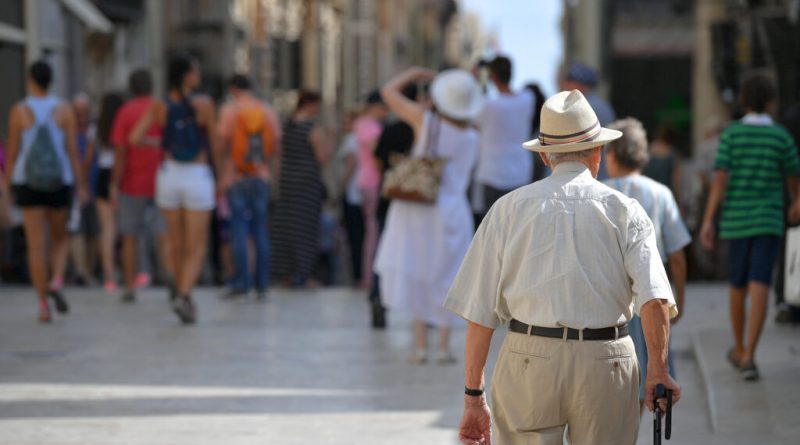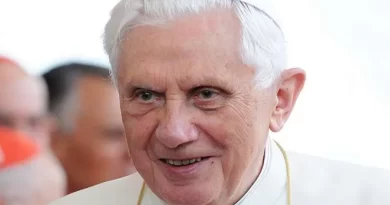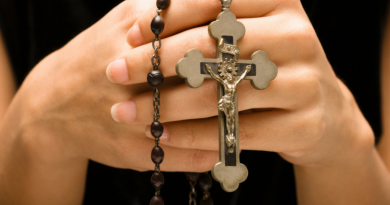Building a society based on care and solidarity
For Lent 2021 the Bishops of Malta, Mgr. Charles J. Scicluna, Arcbishop of Malta, Mgr. Anton Teuma, Bishop of Gozo as well as Mgr. Joseph Galea-Curmi, the auxiliary Bishop of Malta issued a concise but very meaningful pastoral letter. Its title is Building a Society based on care and solidarity.
In this pastoral letter, the Bishops centre on the following points: (1) Those who are in the periphery or rejected; (2) overcoming the virus of individualism; (3) dialogue; (4) healing our wounds; (5) safeguarding life; and (6) St Joseph as a marvellous inspiration.
Animated by the Gospel message with which we start the Lenten season, Repent and believe in the Gospel (Mk 1:15), the Bishops of Malta and Gozo drive home the fact that Jesus is calling us to delve deeper into the essence of our faith. He reminds us: For God so loved the world that he gave his only Son, that whoever believes in him should not perish but have eternal life (Jn 3:16). Furthermore, he also tells us: You are all brethren (Mt 23:8). It is in this perspective that, ispired by Pope Francis’ message in Fratelli tutti, the Bishops wanted to share his message and invite each and every one of us to build a society based on care and solidarity.
Regarding those who are in the periphery or rejected, particularly those who are suffering from the covid-19 pandemic as well as those who feel a deep sense of emptiness in their lives, the Bishops tell us: We wish to honour the many people who show care and solidarity to vulnerable persons in practical ways. They remind us of the importance of listening to the cry of those who are suffering, and also to the silent plea of those who are suffering in silence. Pope Francis continually reminds us to listen to the cry of those who are seeking shelter as they flee from grave humanitarian crises; to listen to the narrative of their shattered lives and to offer an environment in which they feel welcomed, protected, supported and integrated.
Individualism is really a virus that kills not only communion but also the individual person himself or herself. When we surpass the hurdle of individualism, the Bishops tell us: It is only when we open our hearts to the love of God and share this love with others that we will live in fraternity, genuinely caring for others and their well-being. In this context, we no longer consider others as our opponents but as our brothers and sisters. Together we can strive for a society without walls or borders that separate us. This is how we can overcome the virus of individualism. Our fulfilment is found in giving ourselves to others and not in isolating ourselves and focusing entirely on ourselves.
In their pastoral letter the Bishops encourage dialogue, which is “the art of listening”. They say that dialogue allows us to express ourselves respectfully and to contribute without fear. A person who is able to dialogue with gentleness is truly capable of respecting others. Dialogue helps us to understand that those who are different from us may still enrich our lives, since our differences represent an opportunity for us to grow together.
Healing our wounds is also another very important matter on which the Bishops talked about in their pastoral letter. Wounds can be caused both in personal as well as in communal and societal relationships. In front of grave societal problems like tribalism, racism, hatred, domestic violence, broken families, usury, alcohol and drug abuse, greed, abuse of power and also the uglification of the natural heritage, the Bishops say that: We need to work on healing these wounds in a spirit of forgiveness. Moreover, they also say that forgiveness does not imply forgetting, allowing our painful experience to be suppressed within us, or remaining silent when faced with wrongdoing or injustice. Forgiveness does not imply impunity. Forgiveness means not allowing the negative experiences we pass through to enslave us and condition us. No. Real forgiveness frees us from the vicious circle of revenge, as we continue to work wholeheartedly for justice and righteousness. While referring the encyclical Fratelli Tutti the Bishops invites us to break chains through our love, and not to create new chains,… to build bridges and not walls. In concluding on this point, they say that the only then will we be able to overcome prejudices, the walls that were built over the years, and take an active part in the healing of a wounded society.
In their pastoral letter the Bishops spoke as well on the need of safeguarding life. As a matter of fact, and led by a spirit of care and solidarity, the bishops felt the need to encourage every Christian and person of good will to work harder for a culture that respects the life and dignity of every person. They reiterated the point that every human life is precious and is created in God’s image. Thus, in this protection of human life, from the first moments of conception, throughout every moment of life, until its natural end, that forms the foundation of a culture of respect for the rights of every person. The Bishops emphasized that the weak and vulnerable require more attention and care. No one is useless, no one should ever be eliminated.
Finally, the Bishops present the figure of St Joseph, to whom this year is dedicated, as an excellent figure of care and solidarity. In their brief yet beautiful reflection the Bishops explain why St Joseph is a marvellous inspiration towards which society should look at. St Joseph is the person who passed through moments of crisis and suffering. As a refugee, he had to seek refuge for his family away from his homeland. Nevertheless, St Joseph always had great faith in God, he always showed love and kindness to others and was always ready to help. He is a person who listens while courageously taking action to protect the lives of Mary and of Jesus, even before he was born. St Joseph shows us the true heart of a father.
May this pastoral letter serve as a point of reflection, inspiration and fruitful initiatives for other societies far bigger than Malta so that the Gospel message keeps being incarnated in our contemporary culture.
Fr Mario Attard OFM Cap





